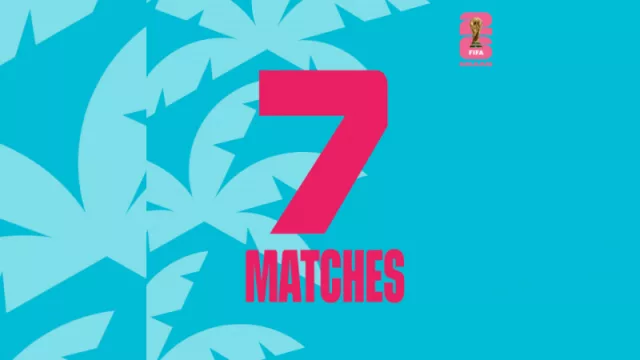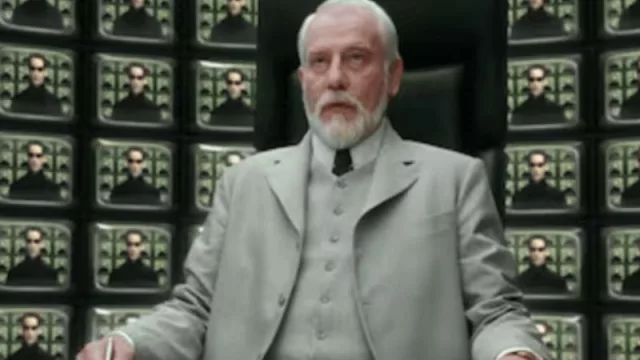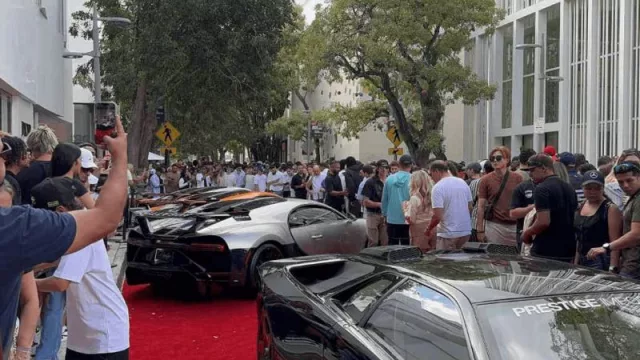But attention:
The most significant act of (disguised) violence is denial: “I don’t hear you,” “I don’t like you,” “I ignore you,” “It’s not like that.” “I don’t read, don’t check social media, don’t listen to messages,” “make emails shorter,” “rework everything into a table.” “I don’t watch TV, I don’t watch that program,” “I don’t see your WhatsApp messages, I don’t respond to them”... “I don’t think Maduro is a dictator, there’s no evidence of that,” says a certain president of an important neighboring country to Venezuela. Camouflaging as a respectable opinion, in the face of overwhelming evidence to the contrary, is not a noble defense; it is a commonly used act in politics, but also in companies of denial, and it is violence.
-
And this is part of the enormous transformation that society is undergoing and wants to transcend today. It no longer makes sense to cling to dogmas, beliefs, indicators, or forms in all aspects of organization. The dynamics of acting this way no longer makes sense, and the evidence of economic impacts is as overwhelming as that of human impact (on health and emotional intelligence indicators).
Certain violent power actors are not just the stereotype of the mature man; violence has no age, condition, or gender. Today, there is much violence from minorities, even from younger people towards adults, and there is also violence exercised by women against other women (very common) as well as against men. What changes are the forms of exercising that violence, but it is increasingly prevalent.
-
And of course, it is vital today to review both victimization and denial and, above all, what lies behind the violence. What fears, what resistance to change, what hidden impotence, what desperate attempt to disguise intolerance or incompetence to address a different problem is there?
-
The need for a broad range of resources today and the need for generalist competencies for the enormous, and especially today, complex decisions expose and reveal the “impotences.” This generates violence to disguise the: FEAR. (That’s why it’s so difficult to acknowledge it, because fear brings guilt, it shows weakness).
-
In an era where actions, methods, and implications are no longer linear, when the cultural or educational background has taught us to solve only problems with a system of tool use that is now not only outdated but whose sense of coherence simply no longer applies, the “violent reaction becomes more exposed”; this is an observation termed “Omnipresent.”
6. Strategies for Transforming Leadership
-
Foster Active Listening: Leaders must practice active listening and ensure that all team members feel valued and heard.
-
Develop Emotional Intelligence: Leaders should be trained in emotional intelligence to manage their own emotions and those of their team.
-
Promote Diversity of Ideas: Create an environment where divergent opinions are valued and creativity is encouraged.
7. The First Step is Broadening Vision, Acceptance, and Revision:
-
It is essential for leaders to recognize the negative impact of their actions and seek ways to transform their leadership style towards one that values empathy, open communication, and collaboration. Accept that today diverse perspectives are needed in every organization, large or small. Change does not happen overnight, but with well-defined strategies, proper training, and genuine commitment from senior management, it is possible to create an organizational culture where violence in leadership is a thing of the past, and where all team members
-
The first step is expanding our vision, embracing acceptance, and engaging in reflection:
It’s crucial for leaders to recognize the negative impact of their actions and seek ways to transform their leadership style into one that values empathy, open communication, and collaboration. Acknowledging that diverse perspectives are needed across organizations, big or small, is essential. Change doesn’t happen overnight, but with well-defined strategies, proper training, and a genuine commitment from top management, it’s possible to foster an organizational culture where leadership violence is a relic of the past, allowing every team member to thrive and contribute fully.
8. Implementing Changes in Organizational Culture (The Head of Culture — more than just a department; it’s about co-CEO leadership and a new way to steer the organization).
-
Why the Head of Culture is So Valuable Today: (In two brief and agile notes, here’s the full explanation).
Changing an organization’s culture to eradicate leadership violence requires a strategic and sustained approach. Here are some key steps:
-
Assessing Organizational Climate: Conduct surveys and interviews to understand employees’ perceptions of leadership and organizational culture.
-
Training and Development: Implement leadership training programs that include emotional intelligence, conflict management, and effective communication.
-
Establishing Communication Standards: Foster a code of conduct that promotes respectful communication and constructive conflict resolution.
-
Feedback and Recognition: Create mechanisms for employees to provide feedback on their experiences with leaders and publicly recognize those who demonstrate positive leadership.
9. Benefits of Positive Leadership
Transforming towards empathetic and respectful leadership not only enhances the work environment but also has positive effects across the organization:
-
Increased Talent Retention: A positive work environment attracts and retains top talent, reducing costs associated with turnover.
-
Greater Innovation and Creativity: When employees feel safe and valued, they are more likely to share innovative ideas and contribute to the organization’s growth.
-
Better Overall Performance: Teams that operate in an atmosphere of trust and respect tend to be more efficient and productive.
10. Recommended Resources
Here are some books and videos that might be helpful:
Books:
-
Emotional Intelligence 2.0 by Travis Bradberry and Jean Greaves: This book offers practical tools for developing emotional intelligence.
-
Leaders Eat Last by Simon Sinek: Explores how great leaders build cultures of trust and collaboration.
-
Dare to Lead by Brené Brown: Focuses on how vulnerability and empathy can transform leadership.
Videos:
-
TED Talk: "The Power of Vulnerability" by Brené Brown: An inspiring talk about how vulnerability can be a strength in leadership.
-
TED Talk: "Everyday Leadership" by Drew Dudley: This talk addresses how we can all be leaders in our daily interactions, emphasizing empathy and respect in leadership.
-
TED Talk: "How Great Leaders Inspire Action" by Simon Sinek: Explains the concept of the "Golden Circle" and how leaders can inspire through a clear and motivating vision.
Additional Resources:
Beyond the mentioned books and videos, here are some organizations and platforms that offer resources on leadership and personal development:
-
Harvard Business Review: Offers articles and studies on leadership, team management, and organizational culture.
-
MindTools: Provides tools and resources for developing leadership and management skills.
-
Coursera and edX: Offer online courses on leadership and emotional management from prestigious universities.
As we move toward a future where positive leadership becomes the norm, it’s essential for both leaders and team members to commit to building healthy and productive work environments where everyone can thrive.
IG: @infonegociosmiami
Registrate sin cargo, ahora, aquí.












Tu opinión enriquece este artículo: